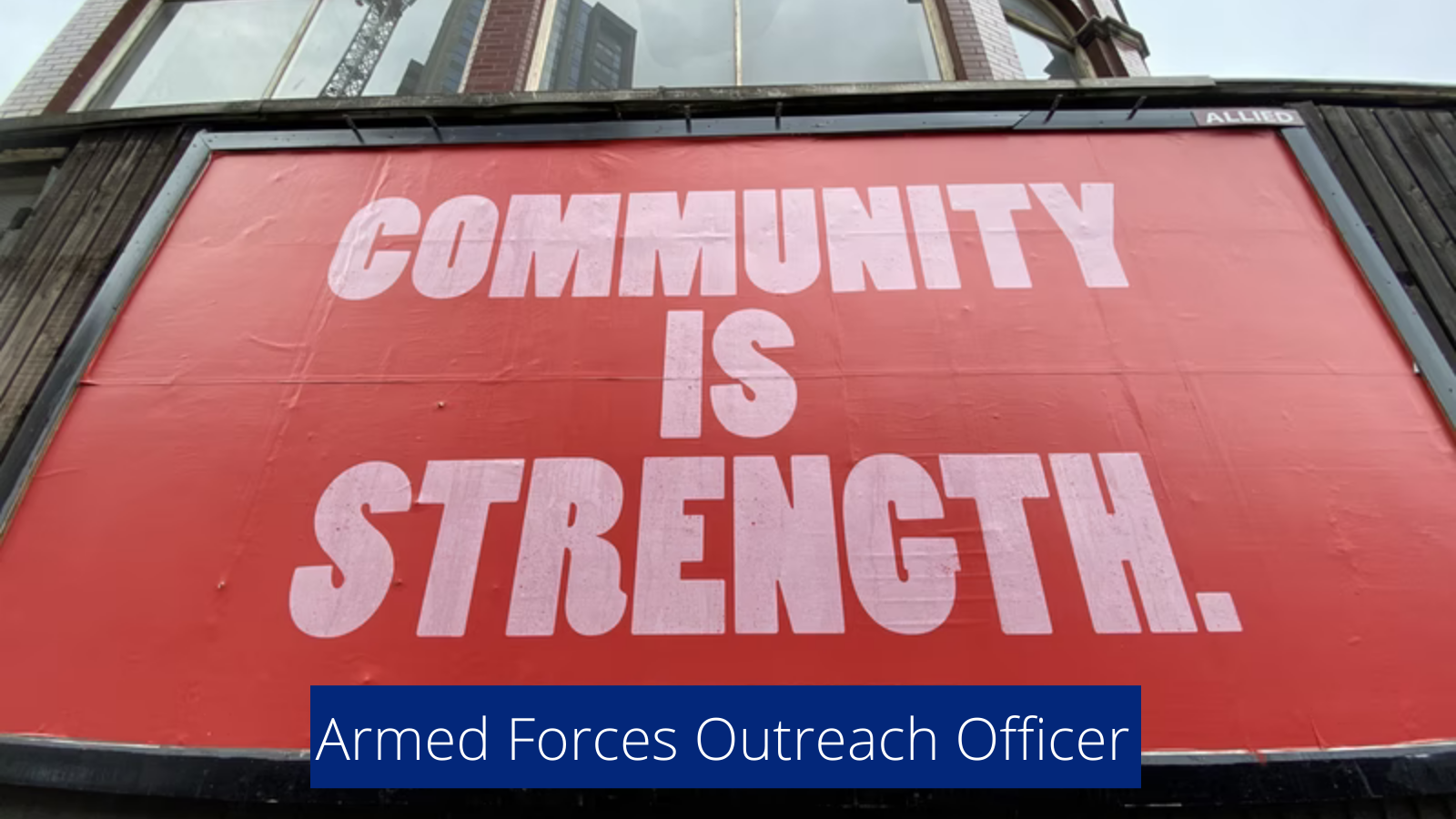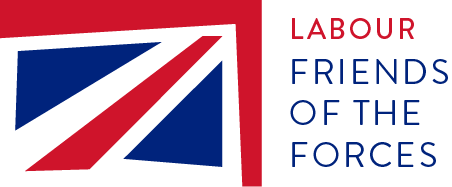
Labour Friends of the Forces (LFF) is a forum for discussion, development, and idea-sharing. LFF is strengthening the links between Labour and our service communities and has a vision of a Labour Party that continues to recognise the intrinsic value of Armed Forces personnel and their families, as well as paving the way for members of the Armed Forces community to participate in politics.
These campaign policy suggestions are successfully being put into practice by Labour councillors up and down the country and offer policy ideas to elected councillors and candidates for local government so that they can demonstrate practical support to the serving and veteran Armed Forces communities in their local areas.
Candidates and councillors can address any queries to labourfriendsforces@gmail.com

Guaranteed Interview Schemes
Introduction
A number of organisations recognise they have a role to play in helping those leaving the Armed Forces (veterans) fulfill their potential in civilian life. Veterans can find making the transition to civilian life extremely challenging, particularly in finding and securing lasting employment. One of the recurring issues is converting military skills into civilian equivalents on an application. A way to counter this problem is through a Guaranteed Interview Scheme.
What is the Guaranteed Interview Scheme for Veterans?
The Guaranteed Interview Scheme for Veterans is a commitment that guarantees an interview for any veteran who meets the essential criteria set out in a job role profile. The scheme does not guarantee a job for veterans, as veterans will still be obliged to undertake interviews and recruitment procedures, but it does give veterans the opportunity to progress straight to interview and thus the opportunity to verbally explain their transferable skill sets and their appropriateness for a role.
What are the Benefits of the Guaranteed Interview Scheme for Veterans?
This scheme has several benefits for the recruiting organisation since Veterans can bring a number of valuable transferable skills and qualities including, but not limited, to:
• Organisational skills and commitment
• Problem solving and adaptability
• Leadership and management skills
• Health and safety/security awareness
• Team working skills
The Guaranteed Interview Scheme has the potential to assist veterans to overcome barriers in finding civilian employment and reduce the risk of veterans developing health and welfare problems as a result of long-term unemployment.
What powers and financing are required?
Implementing a guaranteed interview scheme requires no additional funding.

Dedicated Armed Forces Outreach Officer
Introduction
Conducting effective outreach is essential to developing high-quality veterans’ services at a local level. Veterans’ outreach services take many forms. Two common outreach services are charity sector outreach and a local authority officer (non-dedicated). The first relies on grant funding and is run by an external agency meaning there is a lack of control at the local authority to shape and expand the service. The second essentially bolts the outreach service onto the role of an existing council officer. This means the outreach services must be performed alongside an existing role. Some local authorities have now employed a dedicated Armed Forces Outreach Officer in a bid to improve veterans’ services.
What Is a dedicated Outreach Officer?
A dedicated Armed Forces Outreach Officer, as the name implies, is a council officer dedicated to a veterans’ outreach service. Creating a dedicated outreach officer can strengthen the delivery of the Armed Forces Covenant across a local authority for the serving and veteran armed forces community. This officer is not burdened by other responsibilities giving them the time to develop outreach services and tailor solutions for veterans who require assistance. This may be alongside local charities. Since the officer is dedicated to veterans’ outreach services, they also have the time to develop strong networks within the Armed Forces community. On a practical level, the Armed Forces Outreach Officer also acts as a single point of contact for all Armed Forces-related enquiries into the Council and coordinates services in accordance with the objectives of the Armed Forces Covenant. The officer can also become a point of contact for other council departments requiring advice on the Armed Forces and veteran community, helping to evolve local authority policies.
Powers and Financing
To implement a dedicated Armed Forces Outreach Officer a local authority requires no additional powers as the post holder is an employee of the local authority. The post, however, does require financing and in times of austerity, this can be a barrier to the creation of the post. One option for financing the post that has been successfully implemented in a relationship with the HRA account. One of the main areas of assistance required by the Armed Forces community is housing. The Armed Forces Outreach Officer in this case is essentially a specialist housing officer enabling the local authority to secure funding through their HRA account. However, the budget is set once a year at Full Council and as such the local authority Section 151 officer (Chief Financial Officer) can give advice on available options.
Gym & leisure facilities membership
Introduction
Serving personnel and veterans are often very active and often take advantage of the local authority’s leisure facilities. Local authorities can implement enhanced leisure facility membership for Armed Forces personal and veterans.
What enhanced offers can be made?
This can vary greatly from authority to authority and can depend on how leisure facilities are managed within the authority. For authorities that keep full control of their gym and leisure facilities offer there is a great range of support available. Some examples of enhanced support are:
• First month of membership free
• Enhanced discount on membership
• Free use of gyms
• Free use of all leisure facilities
• Free use of all leisure facilities including immediate family.
Powers and Financing
There are no additional powers required however there may be a small negative impact to the revenue generated from leisure facilities, but this will depend on the size of the Armed Forces community and the scope of the discounts offered.

Housing
Introduction
Allocation of accommodation: guidance for local authorities published in June 2012 (updated January 2021) sets out guidelines for the allocation of local authority housing including the following clauses for armed forces personnel:
3.36 We have made regulations to provide that authorities must not disqualify the following applicants on the grounds that they do not have a local connection with the authority’s district:
(a) members of the Armed Forces and former Service personnel, where the application is made within 5 years of discharge;
(b) bereaved spouses and civil partners of members of the Armed Forces leaving Services Family Accommodation following the death of their spouse or partner;
(c) serving or former members of the Reserve Forces who need to move because of a serious injury, medical condition or disability sustained as a result of their service.
3.37 These provisions recognize the special position of members of the Armed Forces (and their families) whose employment requires them to be mobile and who are likely therefore to be particularly disadvantaged by local connection requirements; as well as those injured reservists who may need to move to another local authority district to access treatment, care or support.
This means that as a minimum a local authority must offer housing without penalizing the applicant for not having a local connection.
What enhanced offers can be made?
• Priority housing offer (enhanced banding or points)
• Dedicated homes for the use of Armed Forces community
• Enhanced homeless offer or partnership working with a veterans’ homelessness charity (Avondale house in Newcastle is a good example)
• Lower rents or council tax available immediately after discharge for a set period of time.
Powers and Financing
There are no additional powers required however depending on the scheme being implemented it could result in lower-income or transfer of assets from the authority to a charity.

Charity and Communications Policy
Introduction
There are varying estimates of how many veterans’ charities exist, but some estimates put the figure at over 500, with various and sometimes overlapping services, and many are also small local charities. One issue the Armed Forces community faces is finding out where to go for help, and sometimes there is information overload that can spread confusion.
What enhanced offers can be made?
Charity sector:
The charity sector can enhance your local Armed Forces community offer. Some local charities can develop tailored location-specific solutions, however many do need support from the local authority. Operation Veteran in North Shields, for example, started as a provider of breakfast clubs and a safe space for veterans to relax, then the local YMCA provided space to hold these for free and the local authority assisted in developing the charity further both in terms of funding and networking and it now provides welfare support (including emergency food parcels), CV support and job help. Local authorities can commit to developing their relationship with the charity sector and work with them to develop strong working partnerships.
Communication:
Some local authorities (Support for Armed Forces personnel and veterans | Hull City Council is a great example) have dedicated officer time and resources to communicating where to go to get help. Whilst this may seem a small initiative it is also extremely effective: Hull offers the basic services themselves but their partnership with the charity sector is well-publicized. What sets Hull’s communications apart is the large number of excellent documents that can be downloaded that clearly and precisely relate to a large amount of information.
Powers and Financing:
There are no additional powers required but, depending on the scheme being implemented, there may be a financial implication. The level of funding each charity requires will vary depending on what service is being offered. Labour Armed Forces Champions and councillors who have experience in this area can assist with advice and networking for candidates and councillors who require more information in this area. Improving the veteran’s websites and producing pdf documents will require a certain amount of officer time but should not have a significant impact on budgets.

